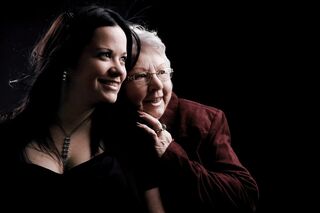Friends
Holiday Minefields: No Kids? Me Neither. Wanna Talk?
4 tips for great conversations with other non-parents, now or any time of year.
Posted December 19, 2020

How many adults do you know who don’t have children? A neighbor. Or Great Aunt Lucy. Or a minister at church. Maybe even a sister or brother.
Some of the most potent conversations non-parents can have are with each other. During the holidays or anytime. Perceived differences between those who identify as childless versus childfree, though, can make instigating such conversations tricky.
Here’s an approach I learned while interviewing childfree and childless women of all ages for my book: Forego asking why they don’t have kids. Instead broach how not having them impacts their lives. Especially when both of you are non-parents, you’re almost guaranteed to discover something unexpected. (Parents can also benefit from this shift of approach.)
Only by opening up can we help overcome stigmas and stereotypes that persist about the childless and childfree. We do that by being seen and heard, and we might as well start with other adults who don’t have kids. Maintaining awareness of differences in our individual circumstances and responses, we can find common ground and learn from non-parents of all ages.

Older non-parents are an especially fruitful route to connection. Regardless why they didn’t have kids, most have integrated non-parenthood into their life narratives. Few have been asked to share, and many will welcome the opportunity.
But what about that distance that separates stories of choice from those of chance?
Odds are about even whether the person you’re talking to wanted some or chose not to have any. Wanting them can involve sorrow and choosing not to may elicit defensiveness. So the conversation can stall from the start. Truth is, however, we have more in common than we have differences.
Here are four tips to get the conversation rolling.
Be curious and respectful.
Someone has to speak up first. Acknowledge your own situation and invite the other non-parent to chime in. How you start sets the stage for where you might go next.
Some examples:
“I’ve wanted to ask you about not having kids for ages. Are you okay with that?”
"I never thought about how not having kids impacts my life, but it plays a significant role. What about for you?"
“I've just begun sharing some of my story with others. Have you talked much about yours?”
With the ice now broken in a different way, you can shift to the juicy part—discovering how someone else has experienced life without kids in all its complexity and vast range of options.
Explore ways to manage circumstances you’re currently facing.
All aspects of life are affected by not having kids—job choices, how you spend the holidays, vacation planning, dealing with aging parents. The possibilities to explore are infinite.
Some examples:
"One of my best friends just had her second child. Have you had any luck figuring out how to maintain close friendships, especially during the baby years?"
"Who will take care of your parents? My siblings are counting on me, since I don't have kids and live nearby, but my mom and I have never really gotten along."
"I'm trying to figure out where to live. Being single, I can go anywhere. What parts of town do you like best?"

Share the pluses and minuses of not having kids.
Chances are good you’ll agree on several of the advantages and disadvantages, though there will be differences based on age, living situation, and life circumstances. If you talk to an elder, you get a sneak preview on what your own future may hold.
Some examples:
"I appreciate not having to save for college. What are some of the ways you've spent the time and resources others have invested in their kids?"
"Have you figured out who to name as executor on your will? What do you think is a good way to ask someone to do the job?"
"What experiences that are important to you would have been difficult had you had children?"
Compare and contrast life experiences.
Without children, we have more autonomy about life choices and can pursue a range of interests. When you discover someone’s passions, conversations flow with ease.
Some examples:
“Are you involved much with other people's children? What satisfying ways of nurturing others have you found?"
"As time goes by, what has surprised you about not having kids? What do you think might surprise parents you know?"
"What are your thoughts about retirement? A number of my friends retired early, but I’m not sure that’s right for me."
When talking with others who don't have kids,
Do:
- Find an approach that works for both of you.
- Maintain sensitivity and respect.
- Listen and learn.
Don't:
- Assume the other person wants to talk.
- Go into detail right away.
- Tout your experience over anyone else's.
Like embarking on a new exercise regime, talking about not having kids can be challenging to initiate. With some basic strategies for getting started, we reap the best results when we customize an approach that honors our personal style and idiosyncrasies.

The potential payoff for trying is huge. As we approach each other with more openness, we learn about and appreciate the value of a broader range of adult experience. We come to know our friends, siblings, colleagues, and neighbors in new ways that include more reproductive diversity and different ways of experiencing life. Younger women and men find answers to their questions and support for their decisions and circumstances. The air around us all circulates more freely.
References
Adapted from Afterword, Kaufmann, Kate (2019) Do You Have Kids? Life When the Answer is No. Berkeley, CA: She Writes Press




